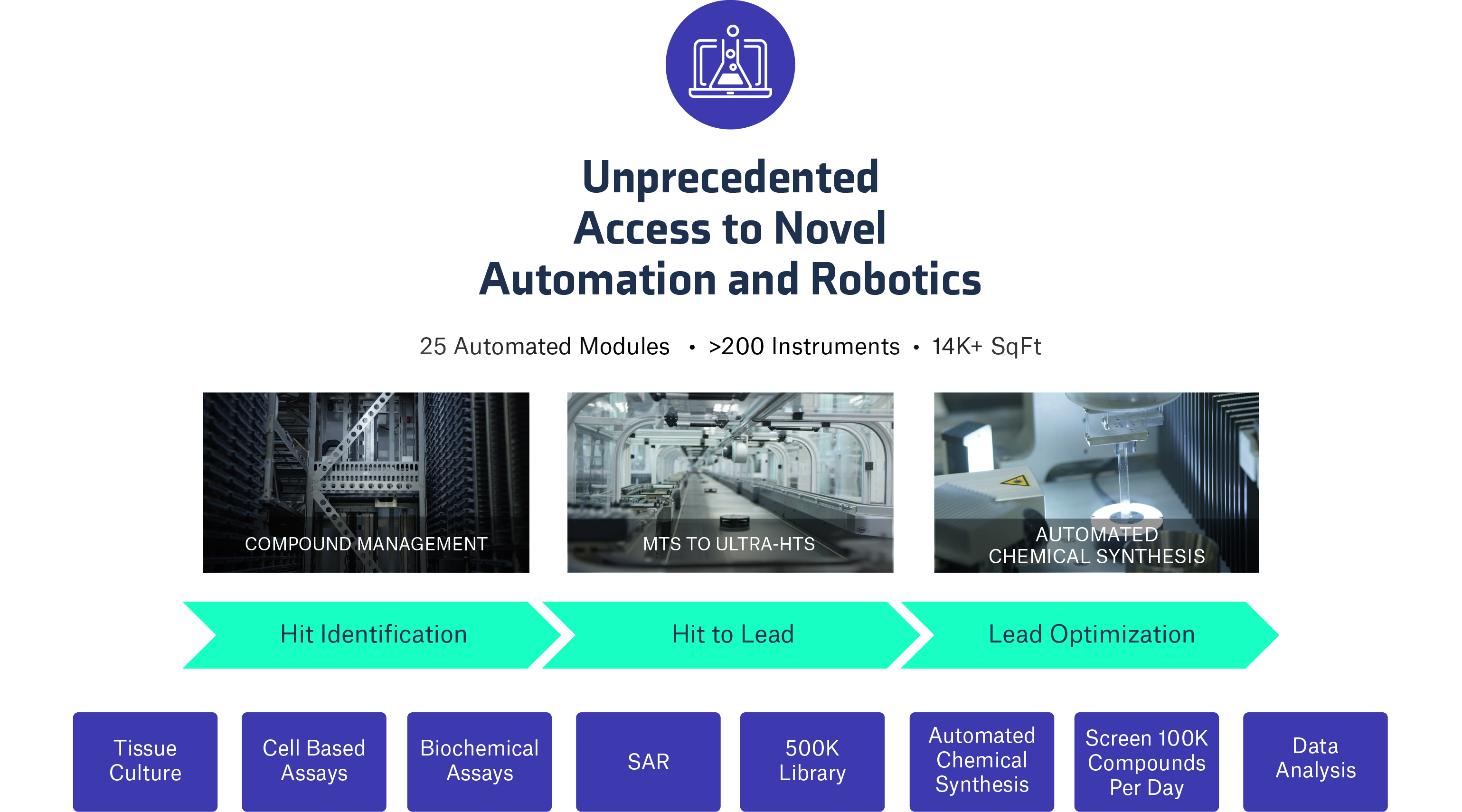The Strateos Cloud Lab Platform enables the orchestration of scientific workflows virtually and the interactive command and control of our unique fleet of lab automation modules which can be accessed from anywhere in the world, speeding the Design-Make-Test-Analyze cycle and generating accurate, machine-actionable data.
Key takeaways from this demonstration of a highly automated DMTA cycle include:
DMTA cycle time is significantly reduced, leading to faster discovery and faster go-to-market
Process control, supervision, monitoring and data capture was accomplished with the Strateos Lab Control Software platform
Centralized automated data capture provides accuracy, end-to-end traceability, reproducibility and precision
Scalable and automated workflows offered by Strateos’ unique fleet of lab automation modules can be a vital asset for small and large drug discovery campaigns
Resources
Browse our collection of whitepapers, case studies, blog posts and videos and learn more about Strateos products and solutions.
Interested in a Demo?
Get in touch today to get access to the Strateos Platform for your team.


